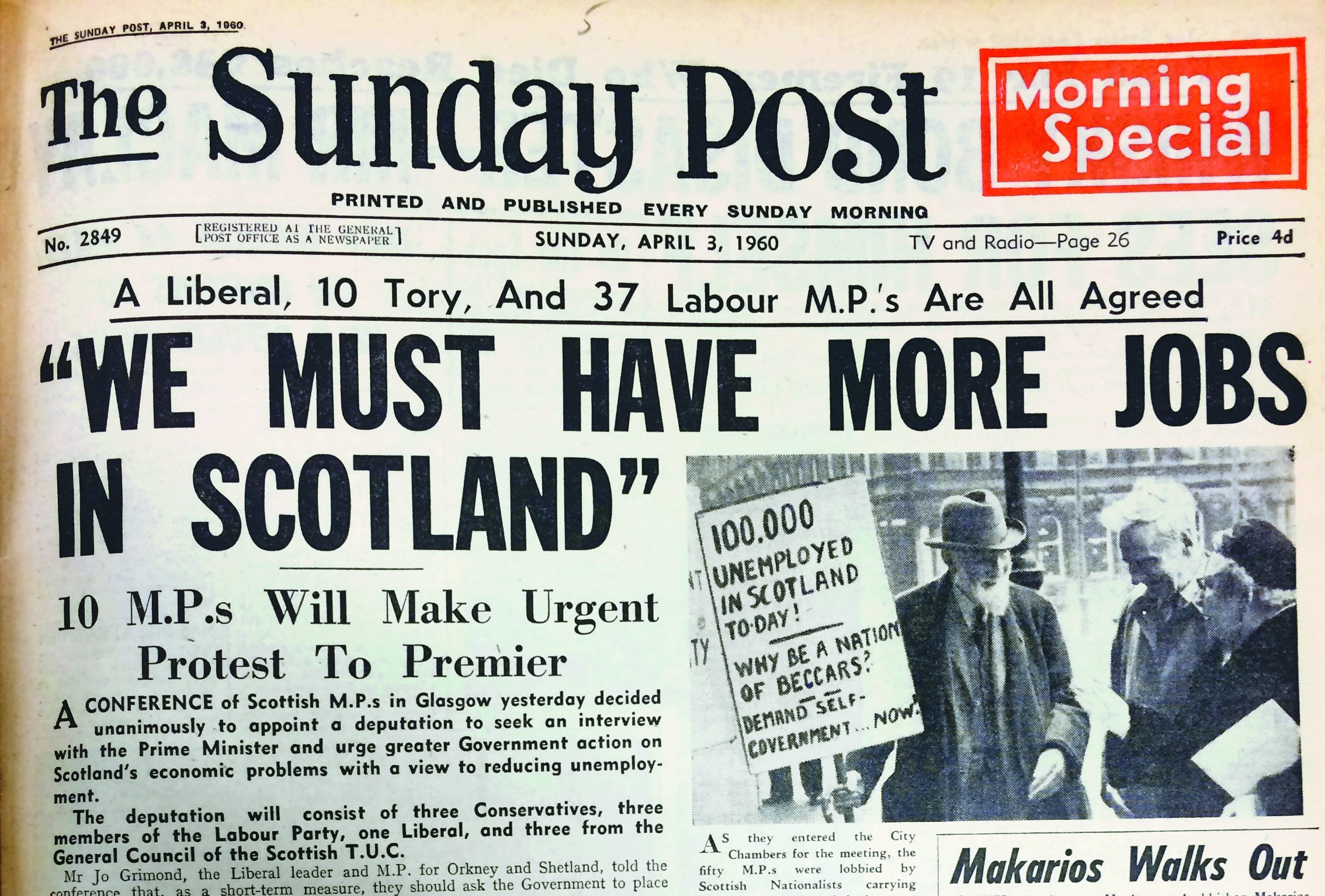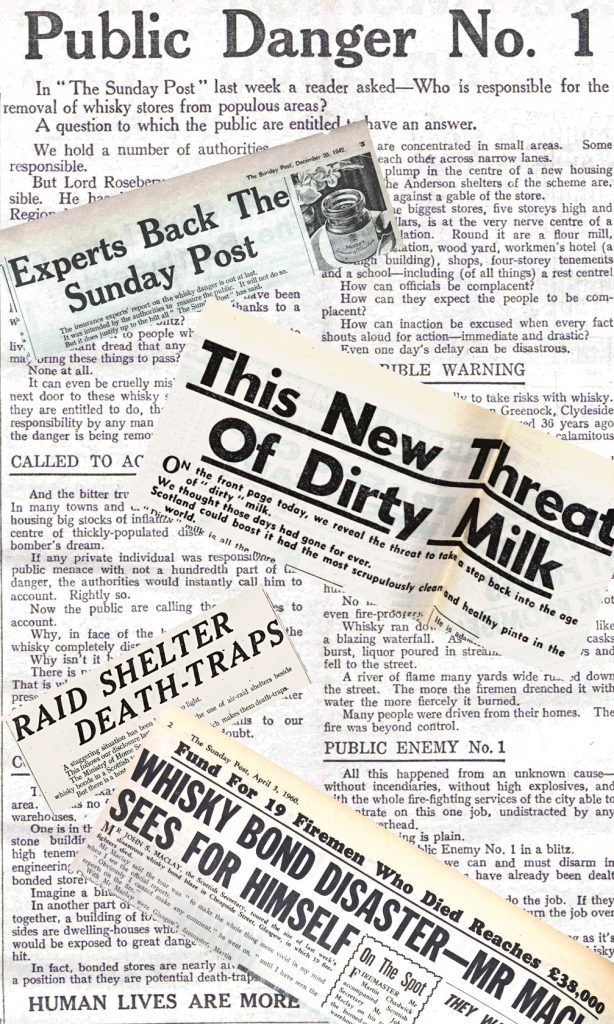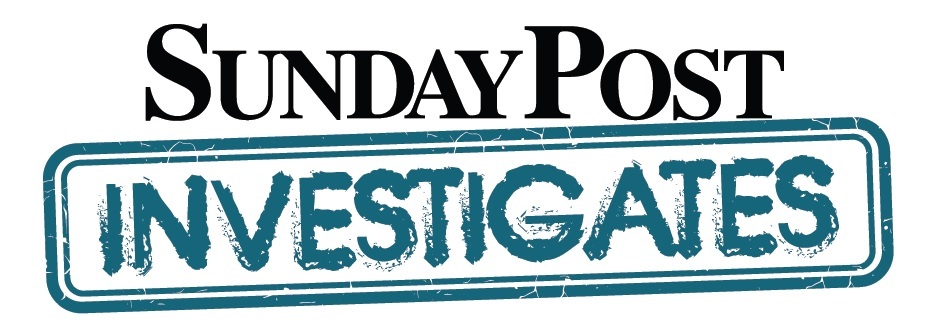
LONG ago, a little girl lay dying in a hospital bed while her mother clutched her hand.
That mother was willing to give her life, if she could, in exchange for her daughter’s. The child had brucellosis. She slipped away while doctors fussed impotently.
Her death was a tragedy for a family, but in the bigger scheme she was a medical case to be studied. Her life was a statistic. In the 1950s and ’60s, people died and . . . that was it. It was unlucky. The disease lottery had claimed another soul.
But that girl’s life could have been saved.
Who cared? The Sunday Post did. Who took action? We did. Who won that battle against brucellosis? You did.
Ordinary people have always mattered to us. It is what The Sunday Post was created to do.
You see, we started in The Great War. We carried soldiers’ stories, their lives and deaths, home from the Somme and Ypres. But when the guns fell silent The Sunday Post carried on reflecting the interests of ordinary folk.
We found a calling and a place in the heart of a nation. But how did we do that? Well we became known as the newspaper for ordinary, decent people, the one that talked the same language as its readers. We cared little for bed-hopping celebrities. We told of things that mattered to you every working day. The stories you talked about at your kitchen table.
We are proud of that. To this day, the first lesson any new member of staff is taught is that we are a caring, family newspaper.
We spoke up on behalf of ordinary folk. We spoke up about what mattered to you.

Our “Blue Light campaign” pointed out, again and again, that bonded warehouses in heavily populated areas were incredibly dangerous if a fire started.
They were moved.
Then our “dirty milk” campaign against brucellosis battered at the doors of government until we ensured all milk was pasteurised. That little girl didn’t die in vain.
By then, we had a taste for it.
We demanded proper instructions for young mothers using formula milk. We fought for a new Great North Road for Scotland. We helped cut domestic violence; we undertook “killers in your home” campaigns that ended the use of ordinary glass in doors and windows in low-level areas of homes; we saw a ban on highly-flammable polyurethane-filled furniture and Christmas tree lights that electrocuted the unwary.
Each time we won a victory we didn’t shout, we looked for another wrong to right.
We rail against unfairness and battle for justice. We do what’s best for our readers. We do what’s right. Throughout it all we have done what you, our readers, wanted.
It helps that The Sunday Post is unique. We are the only national newspaper owned and with its HQ in Scotland. We don’t pander to any global media consortium. We are beholden to no political party. We say what we think.
And today we’re making sure we will carry on those values – which we believe are your values.
There is, again, a need for a dedicated group of journalists to identify problems and tackle them.
We have set up a special team to investigate real modern day issues that affect families as individuals and taxpayers – be it a scandal at your local hospital, the council letting you down or unscrupulous businesses taking you for a ride.
Your problems are our problems.
The Sunday Post is on your side. It always has been, and it always will be.
OUR new investigations team is headed by politics and investigations editor Andrew Picken and reporter Rachel Wearmouth.
If you know a scandal we should investigate, get in contact now. Here’s how to do it:
Email: investigations@sundaypost.com Telephone: 0131 557 3898
Post: Investigations team, Room PM.04, Scottish Parliament, Edinburgh, EH99 1SP
Website: www.sundaypost.com/investigations
READ MORE
Sunday Post Investigates: Scotland’s £10 million court shambles
Justice on Trial: Exposing the charade at the heart of Scotland’s legal system

Enjoy the convenience of having The Sunday Post delivered as a digital ePaper straight to your smartphone, tablet or computer.
Subscribe for only £5.49 a month and enjoy all the benefits of the printed paper as a digital replica.
Subscribe